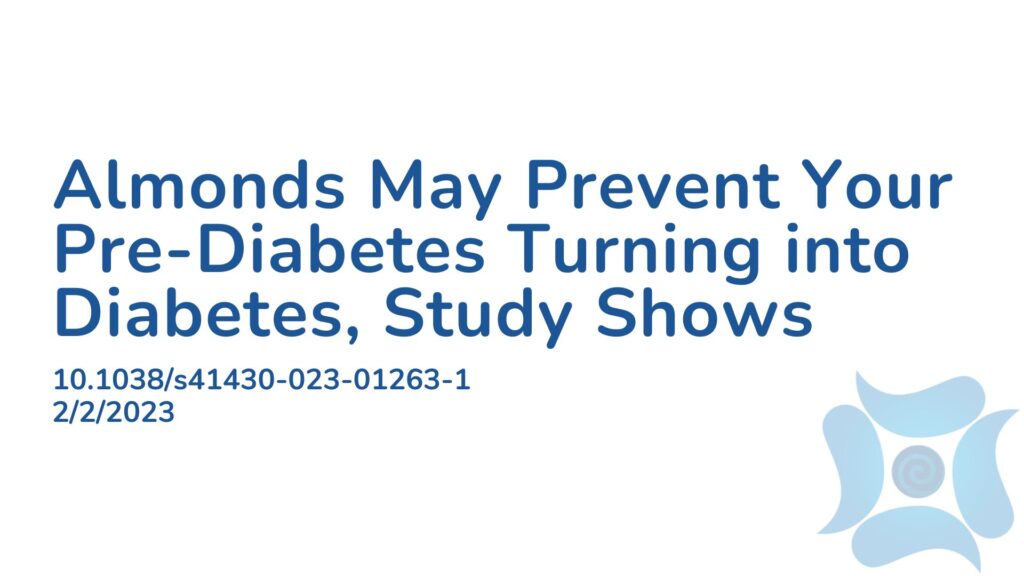Summary:
Given that diabetes is on the rise, there has been much attention paid to dietary interventions that may be able to help the alarming number of pre-diabetic patients that are rapidly developing diabetes. The authors of this paper have hypothesized that pre-loading meals with almonds in participants with pre-diabetes will decrease overall blood sugar levels, improve insulin function and help prevent the development of diabetes. Participants were given a 20g load of almonds and then an oral glucose tolerance test, then were continuously monitored for 3 days including more almond loading before meals. These participants were compared with other participants who did not have the almonds before the oral glucose tolerance test and then compared for glycaemic control. The results showed that during the oral glucose tolerance test phase, overall glucose levels were significantly lower in the almond intervention group. Daily glycaemic control also improved significantly in the intervention group. The authors concluded that the incorporation of 20g of almonds, 30 minutes before each meal may lead to a significant improvement in glycemic parameters and improved insulin responses in participants with pre-diabetes.
Abstract:
Background: Rapid conversion from prediabetes to diabetes and frequent postprandial hyperglycemia (PPHG) is seen in Asian Indians. These should be the target of dietary strategies. Objectives: We hypothesized that dietary intervention of preloading major meals with almonds in participants with prediabetes will decrease overall glycemia and PPHG. Design: The study included two phases: (1) an oral glucose tolerance test (OGTT)-based crossover randomized control study, the effect of a single premeal almond load (20 g) given before OGTT was evaluated (n = 60, 30 each period). (2) The continuous glucose monitoring system (CGMS)-based study for 3 days including premeal almond load before three major meals was a free-living, open-labeled, crossover randomized control trial, where control and premeal almond load diets were compared for glycaemic control (n = 60, 30 in each period). The study was registered at clinicaltrials.gov (registration no. NCT04769726). Results: In the OGTT-based study phase, the overall AUC for blood glucose, serum insulin, C-peptide, and plasma glucagon post-75 g oral glucose load was significantly lower for treatment vs. control diet (p < 0.001). Specifically, with the former diet, PPHG was significantly lower (18.05% in AUC on OGTT, 24.8% at 1-h, 28.9% at 2-h post OGTT, and 10.07% during CGMS). The CGMS data showed that premeal almond load significantly improved 24-glucose variability; SD of mean glucose concentration and mean of daily differences. Daily glycaemic control improved significantly as per the following: mean 24-h blood glucose concentration (M), time spent above 7.8 mmol/L of blood glucose, together with the corresponding AUC values. Premeal almond load significantly decreased following: overall hyperglycemia (glucose AUC), PPHG, peak 24-h glycaemia, and minimum glucose level during night. Conclusion: Incorporation of 20 g of almonds, 30 min before each major meal led to a significant decrease in PPHG (as revealed in OGTT-based study phase) and also improved insulin, C-peptide, glucagon levels, and improved glucose variability and glycemic parameters on CGMS in participants with prediabetes.
Article Publication Date: 2/2/2023
DOI: 10.1038/s41430-023-01263-1



